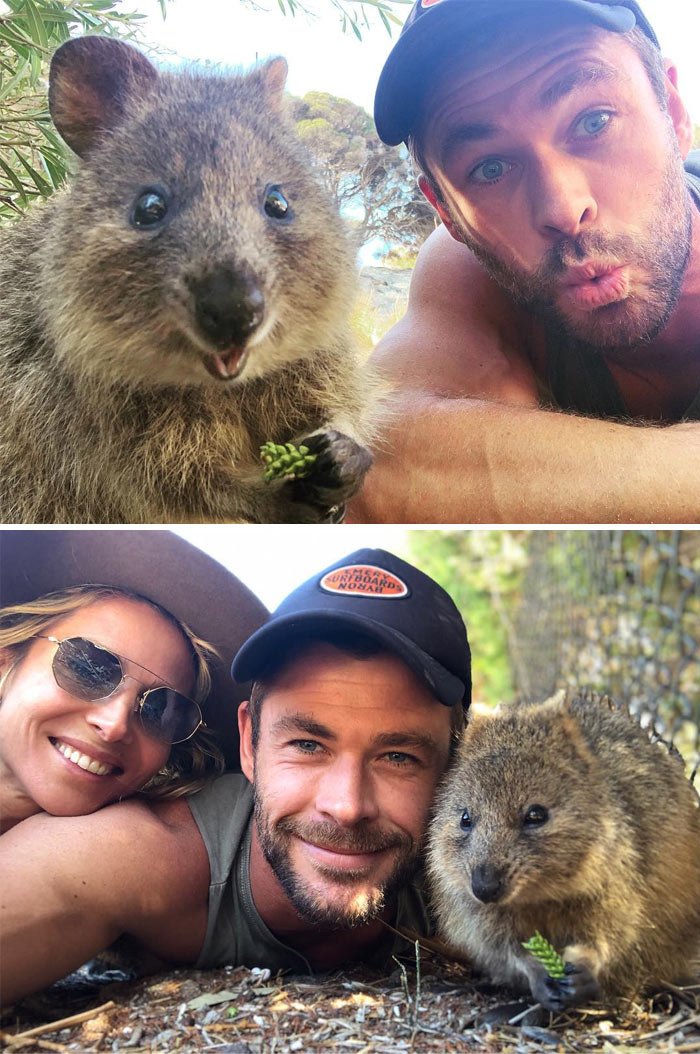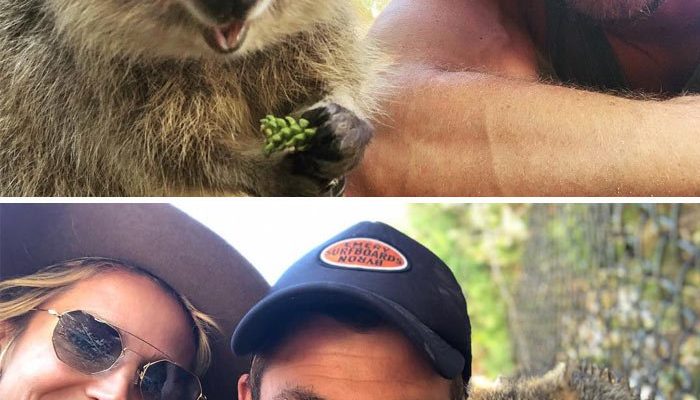
So, let’s dive into the world of the quokka and separate fact from fiction. Whether you’ve seen their charming photos on social media or are just curious about these creatures, I promise you’ll learn something new today. Grab a cup of coffee, and let’s chat about the quirks and truths behind these cheerful little creatures.
What Is a Quokka, Anyway?
Quokkas are small marsupials native to Australia, particularly found on a handful of islands off the coast of Perth. They belong to the macropod family, which means “big foot.” This family also includes kangaroos and wallabies. With their short tails, round faces, and big eyes, quokkas might seem like little kangaroo cousins. They usually weigh about 5 to 11 pounds and are around two feet long—roughly the size of a cat!
You might wonder why everyone is so enamored with them. Well, quokkas have a knack for posing for the camera, thanks to their friendly nature. It’s almost like they know they’re adorable! However, there’s more to quokkas than meets the eye. Their playful personalities often lead to misinterpretations about their behavior and lifestyle.
Myth 1: Quokkas Are Always Happy
One of the biggest myths is that quokkas are always happy and smiling. While it’s true they have that adorable grin-like structure around their mouths, they’re not always in a joyous state. Think of it as a resting smile—like when you’re not actively smiling, but your face shows a friendly demeanor.
In reality, quokkas experience a range of emotions just like any other animal. They can feel stress, fear, and sadness. Their friendly appearance should not be mistaken for perpetual contentment. For instance, when they’re cornered by a predator, you might see behaviors that suggest fear or anxiety. Just because they look cheerful doesn’t mean every moment is filled with joy.
Myth 2: Quokkas Are Domesticated Pets
Some people might think quokkas would make great pets due to their adorable looks. However, this couldn’t be further from the truth. Quokkas are wild animals and not suited for life as house pets. Picture this: you live in a small apartment, and suddenly a little quokka starts hopping around, needing space to roam and forage for food. It just wouldn’t work!
In the wild, quokkas have specific diets and behaviors that are essential for their survival. They primarily eat grass and leaves, and they need to navigate their environments to stay safe from predators. Keeping a quokka at home would not only be impractical but also unethical. They thrive in their natural habitats and should be admired from a distance.
Myth 3: Quokkas Are Threatened by Humans
You might think that with all the tourism surrounding quokkas, especially at places like Rottnest Island, they must be suffering from human interference. Here’s the thing: while they are affected by habitat loss and introduced predators, conservation efforts are actively in place. Humans can impact wildlife, but they can also play a role in protecting it.
Conservation groups work hard to preserve the quokka’s natural habitat and protect them from threats such as feral cats and foxes. Some islands even have programs to help maintain quokka populations. Instead of constantly fearing for their safety, we should focus on supporting these efforts and ensuring that these cute creatures continue to thrive.
Myth 4: Quokkas Are Always Found in Groups
While it’s true that quokkas are social animals, they don’t always hang out in large groups. Picture a close-knit group of friends who sometimes enjoy their own company—quokkas are similar in this sense. They prefer the companionship of other quokkas but can often be seen alone foraging or resting.
This social behavior is often mistaken for needing to be part of a large group at all times. In the wild, quokkas can be solitary, especially during certain times of the day or if resources are scarce. They are adaptable creatures and can manage well on their own, even though they often prefer a buddy or two around.
Myth 5: Quokkas Are Nocturnal
Another common misconception is that quokkas are nocturnal and only come out at night. In reality, they are primarily crepuscular, which means they’re most active during dawn and dusk. Think of them as early birds and night owls combined. During the heat of the day, quokkas tend to rest in the shade to avoid getting too hot.
This behavioral pattern helps them find food while staying cool and safe from predators. So, if you’re hoping to see a quokka during a midday stroll under the sun, you might be disappointed. It’s best to look for them when the sun starts to set or rises in the morning when they’re out and about.
How Can You Help Quokka Conservation?
Now that we’ve debunked some myths, you might be wondering how you can help these little guys. There are a few simple ways to contribute to quokka conservation:
- Support conservation initiatives: Look for organizations focused on wildlife preservation.
- Respect their habitat: If you visit areas where quokkas live, don’t litter or disturb their environment.
- Educate others: Share what you’ve learned about quokkas to inspire people to care.
Making small changes in our behavior can have a big impact on protecting quokkas and their habitats. Every little bit helps!
Final Thoughts on Quokkas
Quokkas are undeniably fascinating creatures with a mix of charm and mystery. Understanding the truth behind common myths helps us appreciate their lives better and respect their place in the ecosystem. Next time you see a quokka photo pop up on your feed, you’ll now know a bit more about what makes these little guys tick. They’re more than just their smiles—they’re wild animals, deserving of our care and respect. So, let’s spread the word and keep celebrating the quokka for the unique creature it truly is!

